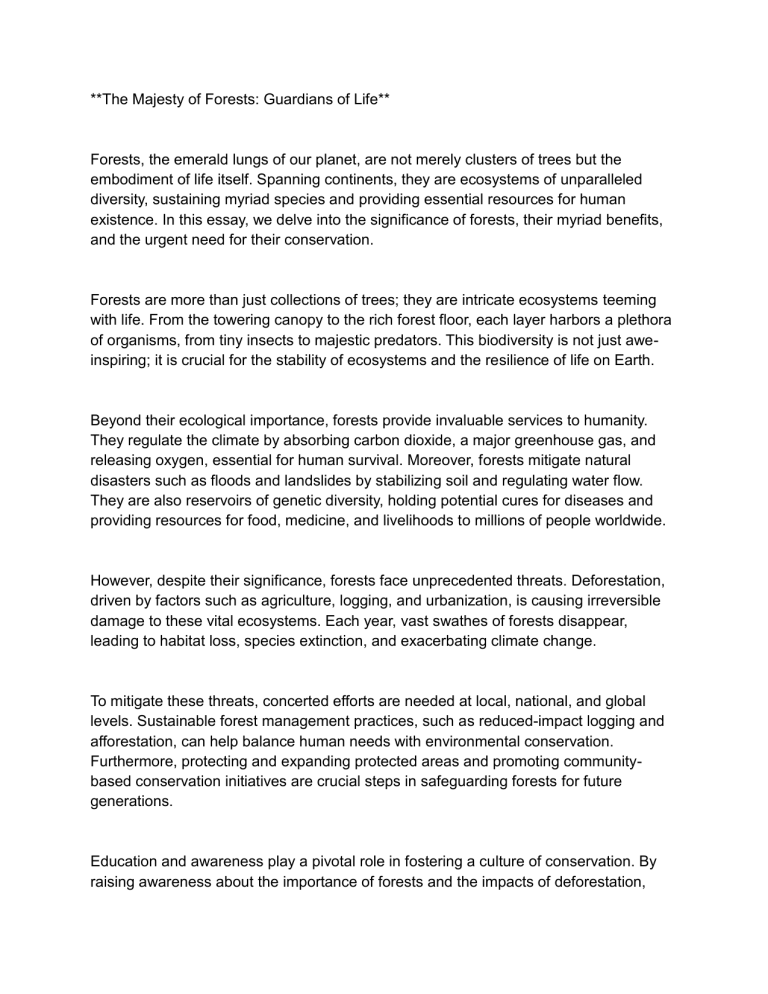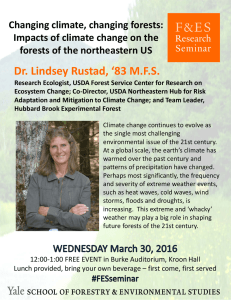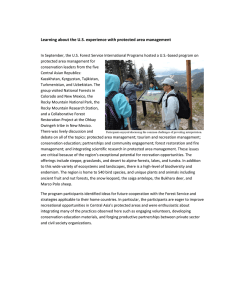
**The Majesty of Forests: Guardians of Life** Forests, the emerald lungs of our planet, are not merely clusters of trees but the embodiment of life itself. Spanning continents, they are ecosystems of unparalleled diversity, sustaining myriad species and providing essential resources for human existence. In this essay, we delve into the significance of forests, their myriad benefits, and the urgent need for their conservation. Forests are more than just collections of trees; they are intricate ecosystems teeming with life. From the towering canopy to the rich forest floor, each layer harbors a plethora of organisms, from tiny insects to majestic predators. This biodiversity is not just aweinspiring; it is crucial for the stability of ecosystems and the resilience of life on Earth. Beyond their ecological importance, forests provide invaluable services to humanity. They regulate the climate by absorbing carbon dioxide, a major greenhouse gas, and releasing oxygen, essential for human survival. Moreover, forests mitigate natural disasters such as floods and landslides by stabilizing soil and regulating water flow. They are also reservoirs of genetic diversity, holding potential cures for diseases and providing resources for food, medicine, and livelihoods to millions of people worldwide. However, despite their significance, forests face unprecedented threats. Deforestation, driven by factors such as agriculture, logging, and urbanization, is causing irreversible damage to these vital ecosystems. Each year, vast swathes of forests disappear, leading to habitat loss, species extinction, and exacerbating climate change. To mitigate these threats, concerted efforts are needed at local, national, and global levels. Sustainable forest management practices, such as reduced-impact logging and afforestation, can help balance human needs with environmental conservation. Furthermore, protecting and expanding protected areas and promoting communitybased conservation initiatives are crucial steps in safeguarding forests for future generations. Education and awareness play a pivotal role in fostering a culture of conservation. By raising awareness about the importance of forests and the impacts of deforestation, individuals can make informed choices in their daily lives and advocate for policy changes that prioritize forest protection. In conclusion, forests are not only the guardians of biodiversity but also the pillars of human well-being. Their preservation is essential for the health of our planet and the survival of future generations. Through collective action and stewardship, we can ensure that forests continue to thrive, sustaining life in all its forms for centuries to come.





